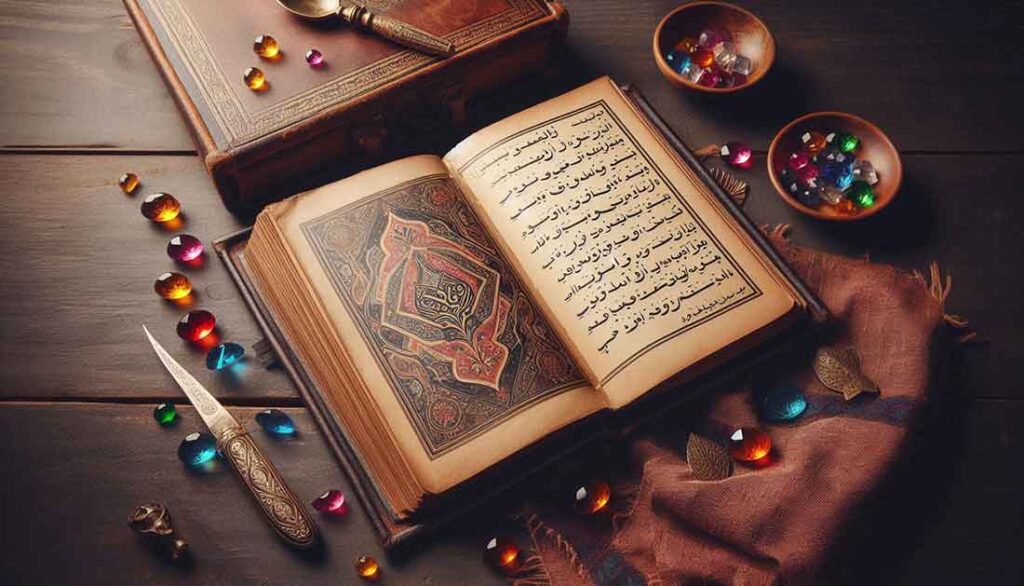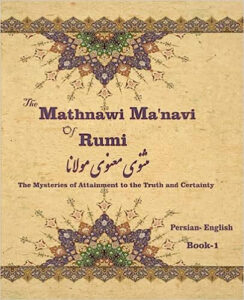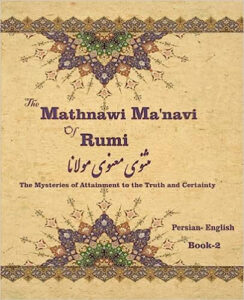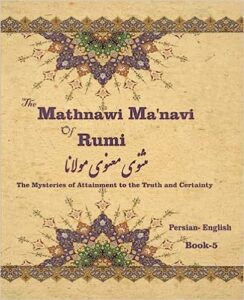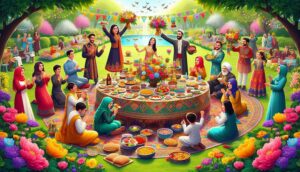Jalal ad-Din Muhammad Rumi, widely known as Mawlavi in the East, was a 13th-century Persian poet, Islamic scholar, and Sufi mystic. His life was a tapestry of profound spiritual experiences that fueled his creative output. Among his works, the Masnavi stands as a monumental piece of Persian literature. Composed over several years, it consists of six volumes and is often referred to as “The Qur’an in Persian” due to its deep spiritual insights.
Mawlavi’s Masnavi is a collection of Sufi teachings wrapped in the form of poetic stories, fables, and allegories. It is more than just literature—it is a guide for those on the path of spiritual enlightenment. It offers a journey through the human soul, touching on themes of love, unity, pain, and spiritual growth.
Table of Contents
ToggleThe Structure of the Masnavi
The Masnavi is divided into six books, each brimming with wisdom and insights. These books address different aspects of the spiritual path, weaving stories, parables, and anecdotes together to deliver profound lessons.
- Book One begins with the famous story of the reed flute, symbolizing the soul’s longing for union with the Divine.
- Books Two and Three delve into human weaknesses, material temptations, and the importance of detachment.
- Book Four focuses on divine wisdom and offers stories that challenge human understanding.
- Books Five and Six are deeper explorations of unity with God, using parables to explain complex mystical ideas.
Each book has a unique narrative style, combining poetic elegance with moral depth.
Themes Explored in the Masnavi
At its core, the Masnavi touches on several spiritual themes that guide readers toward self-awareness and a deeper connection with the Divine.
- Divine Love and Union: A recurring theme is the soul’s yearning to return to its source. Mawlavi teaches that love is the force that connects the soul to the Divine.
- Human Struggles: Mawlavi acknowledges the struggles of human life—temptations, ego, and material distractions—and provides guidance on overcoming these obstacles through faith and love.
Gems of Wisdom in the Masnavi
The Masnavi is often described as a treasure trove of wisdom. Some of its most profound passages speak to the nature of existence, the relationship between humans and God, and the inner workings of the soul.
One famous line from Mawlavi is, “You were born with wings, why prefer to crawl through life?” This single verse encapsulates his view of human potential and the divine essence within each individual.
The Importance of Stories in the Masnavi
Stories are the primary vehicle through which Mawlavi conveys his teachings. Each tale serves as a parable, with deeper meanings embedded in the narrative.
For example, the tale of the elephant in the dark illustrates how people perceive reality differently based on their limited understanding, a lesson in humility and the limits of human knowledge.
Spiritual Insights in the Masnavi
Mawlavi provides a roadmap for the soul’s journey. The path to enlightenment is filled with trials and tribulations, but each step brings one closer to the Divine.
Mawlavi emphasizes the importance of self-awareness and inner reflection, urging readers to look beyond the material world and recognize the spiritual forces at play.
Love as a Central Theme in the Masnavi
Divine love permeates every part of the Masnavi. Mawlavi explores the concept of love, not just in the human sense but as a force that transcends the physical realm. The relationship between the lover and the beloved represents the bond between the soul and God, where longing and fulfillment coexist.
The Concept of Unity in the Masnavi
Mawlavi often speaks of unity with the Divine, highlighting the illusion of separation that keeps humans from recognizing their true nature. According to him, once we realize that everything is interconnected, we can break free from the limitations of the ego and experience divine union.
The Role of Suffering and Pain in Spiritual Growth
In the Masnavi, Mawlavi portrays suffering as a catalyst for spiritual growth. He believes that pain is necessary to strip away illusions and help the soul focus on its journey toward God.
The Language and Symbolism in the Masnavi
Mawlavi’s use of metaphor is unparalleled. He uses everyday images, like the reed flute or a candle’s flame, to represent deeper spiritual truths. His language is accessible, yet it invites readers to dive into the layers of meaning hidden within each symbol.
Human Nature in the Masnavi
Mawlavi’s insights into human nature are both compassionate and critical. He acknowledges human weaknesses—greed, pride, and envy—but also highlights the soul’s capacity for immense love, wisdom, and growth.
The Influence of Mawlavi’s Masnavi
The Masnavi has had a lasting impact on Persian literature and Islamic mysticism. It has influenced countless poets and philosophers, shaping the spiritual and literary landscapes of the Middle East and beyond.
Modern Relevance of the Masnavi
Mawlavi’s teachings are timeless. In today’s world, where materialism often overshadows spirituality, the Masnavi offers a beacon of wisdom. Its lessons on love, unity, and the human soul are as relevant now as they were centuries ago.
Reflection on Mawlavi’s Legacy
Mawlavi’s Masnavi continues to inspire and guide spiritual seekers. Its wisdom transcends time, offering eternal truths that resonate with people from all walks of life.
Frequently Asked Questions (FAQs)
1. What is the main message of the Masnavi?
The main message is about the soul’s journey towards divine love and unity with God.
2. How does Mawlavi use stories in the Masnavi?
Mawlavi uses stories to illustrate complex spiritual truths in a way that is relatable and easy to understand.
3. Why is love such a central theme in the Masnavi?
Love, for Mawlavi, is the driving force of the universe and the bond that connects the soul to the Divine.
4. How is suffering portrayed in the Masnavi?
Suffering is seen as a necessary part of spiritual growth, pushing individuals toward self-awareness and enlightenment.
5. How does the Masnavi remain relevant today?
Its teachings on love, unity, and the spiritual journey offer timeless wisdom that applies to modern life’s challenges.
6. What influence has the Masnavi had on literature and spirituality?
The Masnavi has greatly influenced Persian literature and Sufi thought, shaping the works of countless poets and mystics worldwide.

